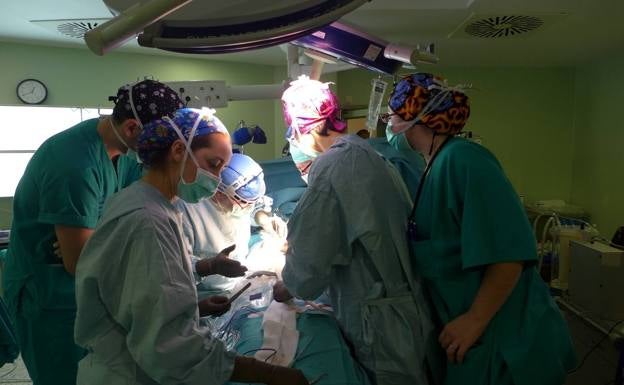Around 27% of Malaga residents have private health insurance, the highest rate in Andalucía
Nearly 30,000 private health policies were taken out in the first year of the pandemic in Malaga province, which is higher than the national average
ANA BARREALES
Friday, 9 September 2022
Health insurance is gaining ground in Malaga province, where 26.8 per cent of residents now have a private health policy according to Unespa, the Spanish Union of Insurance Companies.
In December 2020, nearly half a million people (452,561) had taken out this type of insurance and nearly 30,000 (27,735) did so during the first year of the pandemic.
Malaga has had long waiting lists for different types of consultations and operations for years and there are also delays in obtaining diagnostic tests, something which has worsened since the Covid crisis.
It is therefore not surprising that in terms of private health insurance this province is well above the average in Andalucía (which is 20%) and Spain (23%).
The growth in the number of policyholders has been particularly notable in the past five years. Only 16 per cent of people in Malaga province had health insurance in 2011, a figure which was below the national average of 18.5 per cent at the time. Just nine years later, it had risen by nearly four points.
In the Spanish health service, patients have to see their GP before being referred to a specialist, who then arranges the tests needed for diagnosis. The fact that so many filters are needed, with the corresponding delays, means that many patients have to wait longer than they should to be treated. This, combined with the fact that more companies are offering private health insurance as part of an employment package, has meant that the market is on the increase, despite the years of crisis.
To give an idea of the strength of the health insurance sector in Malaga within Andalucía, of the 1,750,322 clients in the Andalucía region, 25.8% live in the province, which accounts for one in every four policyholders.
Carlos Bueno, Private Medicine representative at the College of Doctors in Malaga, says that in recent years, "rather than a deterioration in the public health service, what has happened is that private health has improved and this has been demonstrated by the pandemic. Without it, the system for surgical operations would have collapsed and waiting lists would have become untenable because of the tsunami of the coronavirus," he says.
One of the reasons for this situation is that Malaga is an economic powerhouse in Andalucía, and that is reflected by this type of contract. An increasing number of companies are offering their staff health insurance as a benefit of employment and this is something which seems popular, especially when the employees can include family members at a lower cost than normal.
Carlos Bueno says one of the problems with this increased popularity of health insurance and private medicine is that conditions for the doctors who work in this field have not improved at the same rate.
"In the last 30 years, medical fees haven't been updated once. There are cases where doctors are paid 70 euros for a breast cancer operation or nine euros for a consultation. That is hardly attractive to young doctors and that's why they often decide to move to other countries to work, or remain in the public health service," he explains.
This outflow of talent occurs because few countries offer the quality training received by medical students in Spain, so it is easy for them to find work opportunities abroad.
Bueno also says that in recent months some private health insurance companies have been offering low-cost policies, which are unparalleled in the rest of Europe. "Some are offering policies for 15 euros a month, which is obviously not sustainable. The average in Europe is 300 euros per person," he says.
Although Unespa does not yet have the figures per province for the whole of 2021, turnover in health insurance increased by nearly five per cent in the past year and the figure the College of Doctors of Malaga has for that year is 12 million policyholders in Spain, so it is probable that the percentage in Malaga province will continue to rise.
State employees
The statistics for people in Spain with private medical insurance includes civil servants who are insured by Muface, the General Mutual Society for Civil Servants; Mugeju, the General Mutual Society for the Judiciary; and the Armed Forces Social Institute (Isfas).
In their case there is a clear preference for private health cover: the figures show that 80 per cent of public employees who have been given the option of this type of insurance have taken it up.
is the number of Malaga residents with private health insurance, and the figure has particularly increased in the past five years: from 20 per cent in 2015 to 26.8 per cent in 2020
